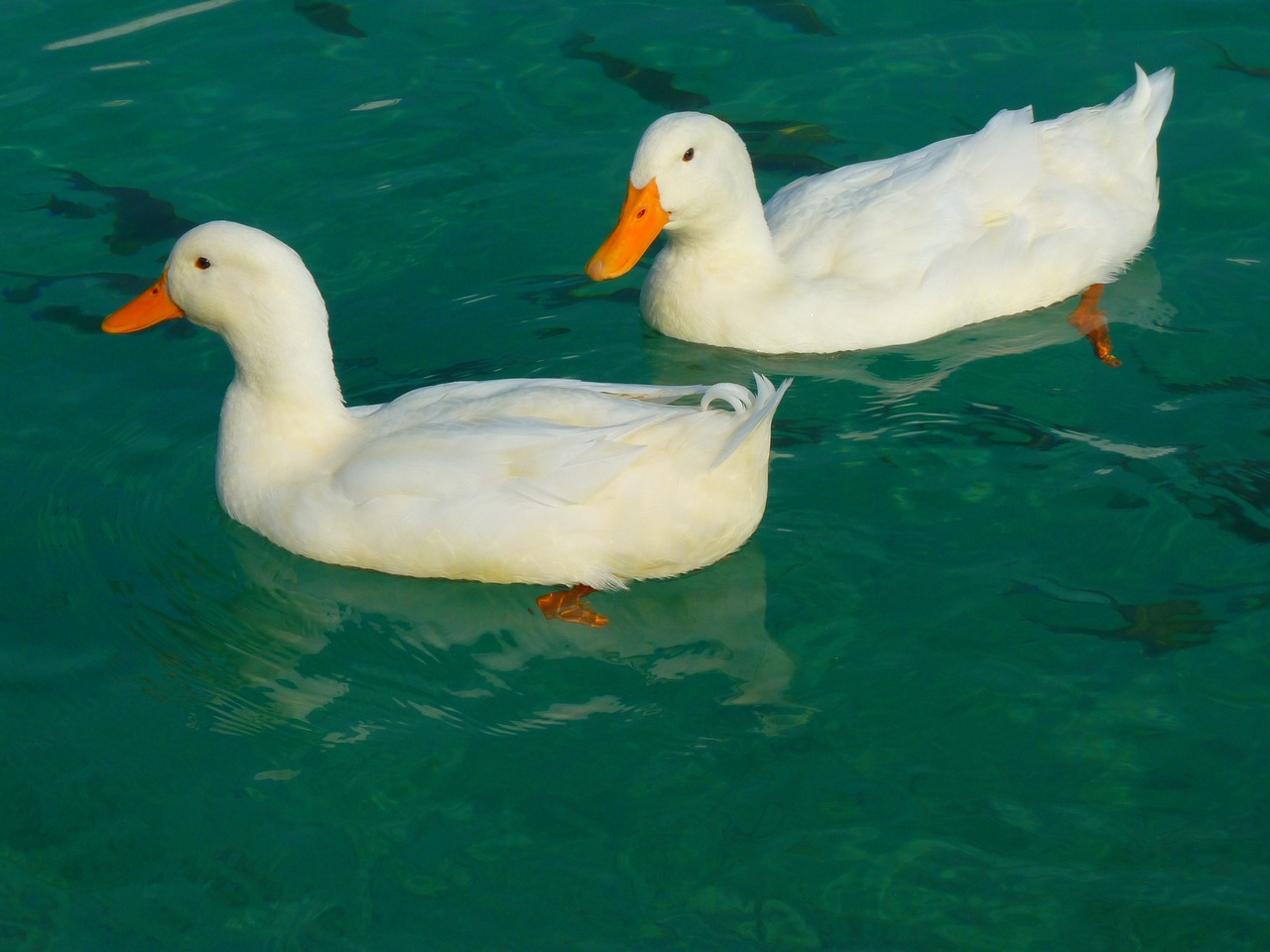Want to know: Can Ducks Eat Grapes? Find Here everything and solve your confusion, ensuring your feathered friend’s well-being.
Wondering Can Ducks Eat Grapes? Find Here and discover every detail to know how to feed grapes to ducks safely. Let’s explore the Do’s and Don’ts of offering this treat to quacking companions.
FIND Can You Eat Pansy Flowers
Can Ducks Eat Grapes?
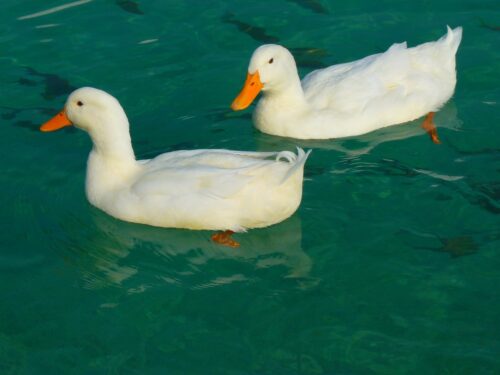
Yes, ducks can eat grapes. Grapes, while not toxic to ducks in moderation, should be given sparingly and with caution. When it comes to feeding ducks, providing them with a balanced diet is essential to ensure their health and well-being.
Ducks are omnivorous birds and have a varied diet that includes aquatic plants, insects, small fish, and other natural foods found in their environment.
Here’s a detailed explanation of feeding grapes to ducks:
1. Moderation is key
Grapes, like many fruits, are high in natural sugars. Feeding ducks too many sugary foods can lead to health issues such as obesity and diabetes. Therefore, grapes should be considered a rare treat rather than a staple in their diet.
2. Size and preparation
If you decide to feed grapes to ducks, it’s essential to cut or break them into smaller pieces. Ducks have relatively small beaks and can have difficulty eating large grapes. Smaller pieces are not only easier for them to consume but also reduce the risk of choking.
3. Wash thoroughly
Before offering grapes to ducks, make sure to wash them thoroughly to remove any pesticides, residues, or contaminants that may be present on the fruit’s surface.
4. Duck preference
Not all ducks will have the same preferences, and some may not even be interested in eating grapes. It’s essential to observe their response. If they don’t show interest, do not force the grapes on them.
5. Variety in diet
Ducks require a well-rounded diet that includes a mix of grains, seeds, aquatic vegetation, and small invertebrates. Grapes should not replace these essential components of their diet.
6. Feeding location
If you choose to feed ducks grapes, consider doing so in a designated feeding area rather than tossing them into a pond or lake. This can help prevent grapes from sinking to the bottom, where they may go uneaten and contribute to water pollution.
7. Drowning risk
Ducks may swallow grapes whole if they are too large, which can pose a choking hazard. There is also a slight risk that grapes can contribute to buoyancy issues if consumed in large quantities, potentially leading to a risk of drowning.
Find What Do Leaf Bugs Eat?
Nutritional Value of Grapes for Ducks
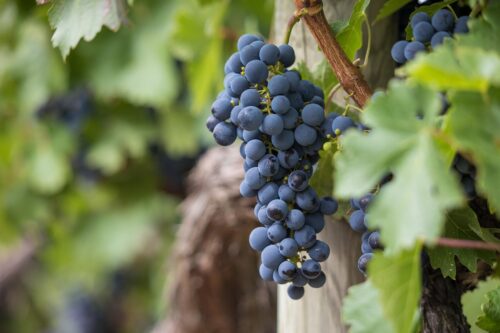
Grapes offer ducks fiber, energy, vitamins (C and K), and hydration due to their water content. However, their high sugar levels mean grapes should be occasional treats. Ducks should mainly rely on a balanced diet of waterfowl pellets, grains, seeds, and aquatic vegetation for essential nutrients.
Explore Do Deer Eat Geraniums?
Are Grapes Safe for Ducks?
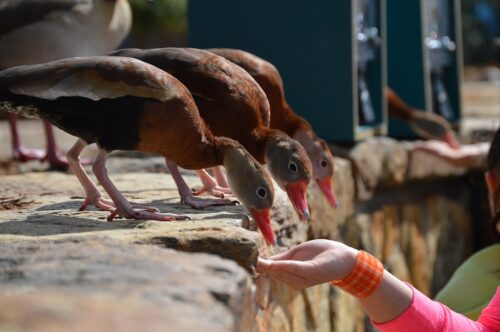
Grapes can be a tasty treat for ducks when offered in moderation. However, there are some important do’s and don’ts to keep in mind when feeding grapes to ducks:
Do’s:
Cut into Small Pieces: To make it easier for ducks to eat and digest grapes, cutting them into smaller, bite-sized pieces is a good idea.
Wash Thoroughly: Before feeding grapes to ducks, ensure they are properly washed to remove any pesticides or contaminants. Ducks can be sensitive to chemicals.
Seedless Grapes: Always offer seedless grapes to ducks. The seeds can be a choking hazard and are not safe for them to consume.
Fresh Grapes: Offer fresh grapes and avoid giving them spoiled or moldy grapes. Ducks, like other animals, can become sick from consuming spoiled food.
Supplement, not Substitute: Grapes should not replace their regular duck feed. Ducks require a balanced diet, so grapes should be considered an occasional supplement.
Discover Everything About What Do Moths Eat?
Don’ts:
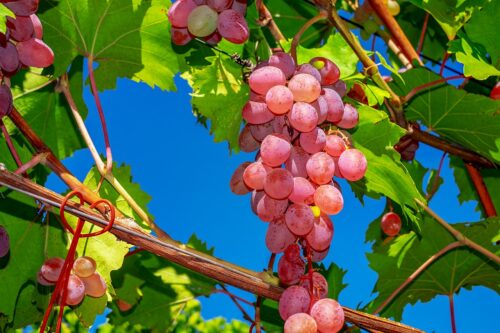
No Moldy Grapes: Never feed ducks grapes that have started to rot or develop mold. Mold can be toxic to ducks and cause serious health issues.
No Grapevines or Leaves: While the grapes themselves are safe in moderation, the grapevines and leaves can be toxic to ducks. Stick to the fruit portion only.
Avoid Overfeeding: Ducks have relatively small stomachs, so avoid overfeeding them with grapes or any other treats. Too much of any treat can lead to health problems.
Don’t Feed Unripe Grapes: Unripe grapes can be sour and harder to digest, so it’s best to wait until grapes are fully ripe before offering them to ducks.
No Processed or Candied Grapes: Ducks should never be given processed or candied grapes, such as raisins or grapes coated in sugar. Stick to fresh, natural grapes.
Do Deer Eat Mums? FIND OUT
Can Ducks Eat Grapes – FAQs
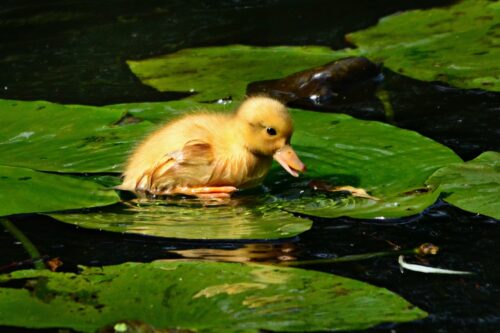
Q1: Can ducks eat grapes, or is it safe for them?
A: Yes, ducks can eat grapes in moderation. Grapes are safe for ducks when given as an occasional treat and when following certain guidelines, such as providing seedless grapes and cutting them into small pieces.
Q2: Are there any risks associated with feeding grapes to ducks?
A: Feeding ducks too many grapes can be harmful because of their high sugar content. Overconsumption can lead to digestive issues and obesity. Always offer grapes as a supplement, not a primary food source.
Q3: Can I feed ducks grapes in water?
A: Tossing grapes into the water where ducks swim is not recommended. They might not easily see or access the grapes in the water, potentially leading to pollution. Instead, offer grapes on land or at the water’s edge.
Q4: Can baby ducks eat grapes, or is it only for adult ducks?
A: Baby ducks can eat grapes, but they are more sensitive and should be given smaller portions. Ensure the grapes are cut into very small pieces to prevent choking hazards.
Q5: What signs should I watch for if I suspect grapes are causing issues for ducks?
A: Signs of potential issues include changes in behavior, reduced appetite, vomiting, or diarrhea. If you observe any concerning symptoms, consult a veterinarian familiar with waterfowl for guidance.

